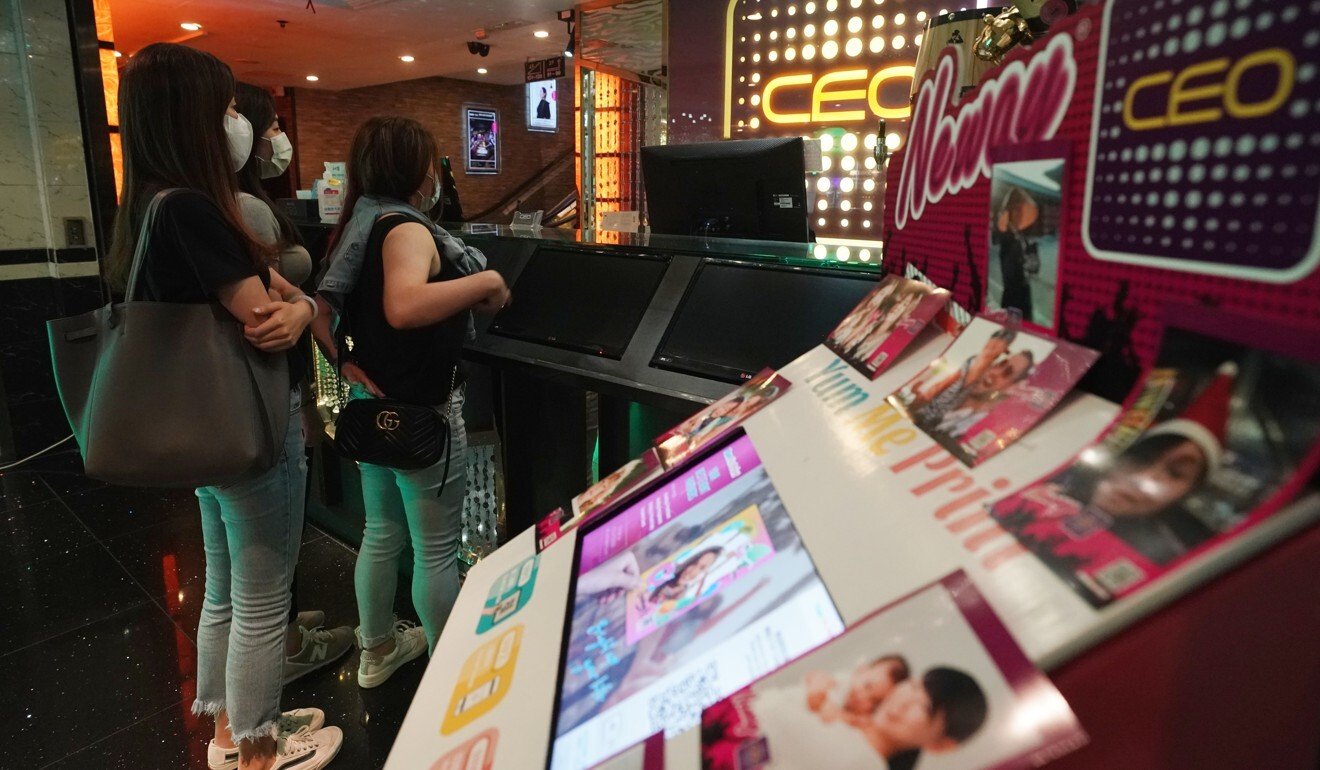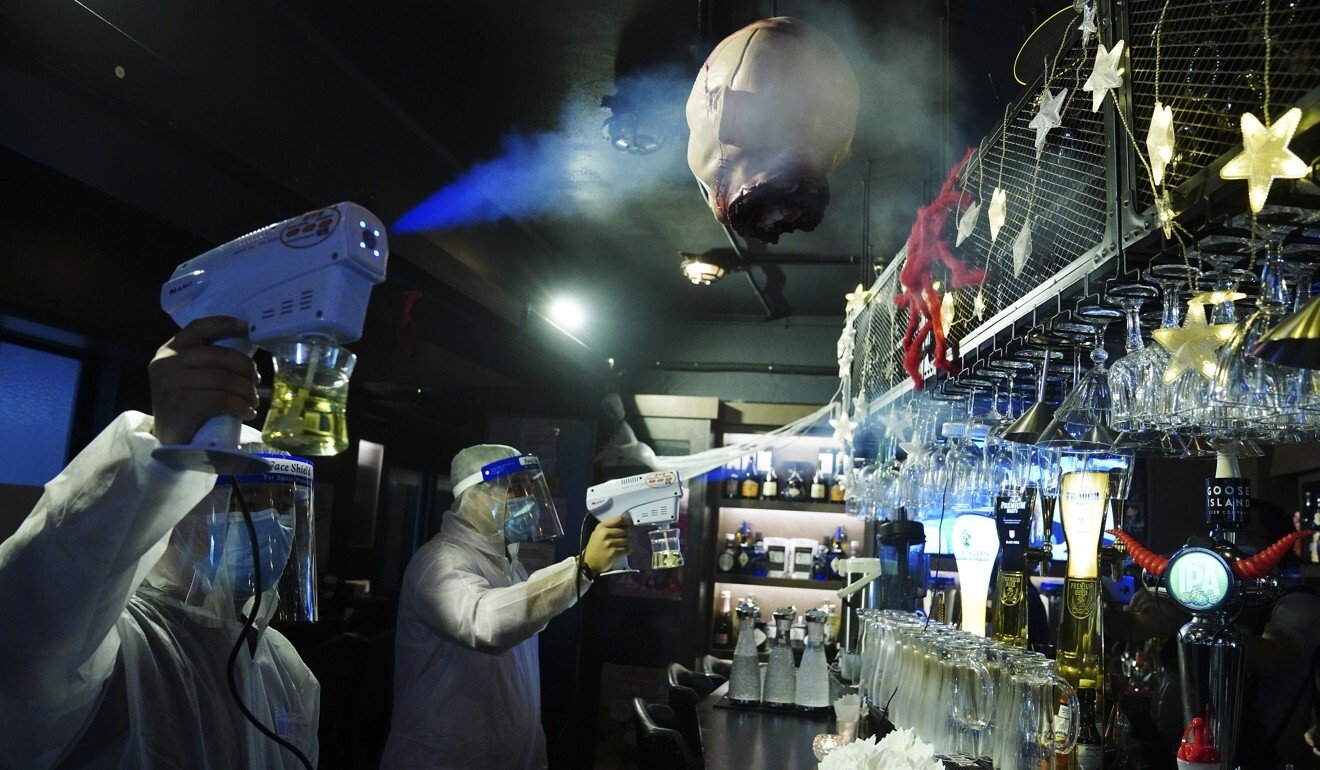
Hong Kong entertainment venues linked to more ‘widespread dispersion’ of Covid-19 than households, eateries, study finds
- Researchers say the number of strangers gathering in bars made the venues particularly prone to broader networks of infections in the first and second waves
- However, preliminary data for the third wave shows the trend had diminished, hinting that ‘some measures were effective’
Researchers behind the Chinese University study noted that strangers gathering at entertainment venues had contributed to broader networks of cases, as compared to other common transmission settings such as households and eateries, which tended to see more limited spreads.
“People there do not know each other,” said Professor Lee Shui-shan, one of the lead authors of the study and the deputy director of the university’s centre for emerging infectious diseases. “If an infection happened there, the ability to spread the virus further would be much higher.”
“If you know those people at the site and you develop symptoms, you could notify them, and they could then go for testing,” added Professor Yeoh Eng-kiong, another author of the study and the director of the university’s centre for health systems and policy research.

The study, which was published early this month in the journal Lancet Regional Health - Western Pacific, reviewed 1,128 cases reported in Hong Kong in the city’s first and second waves of infection spanning from January 23 to June 19.
Of those, a total of 324 cases were local transmissions, taking place across 12 types of exposure settings, including households, eateries, parties and entertainment venues.
While household transmissions accounted for the largest number of local cases – at least 180 – entertainment venues were found to be linked to the most extensive transmission “cascades”.
Residents’ return scheme opens as Hong Kong confirms nine new Covid-19 cases
Infections that began in bars were found to have sparked some 30 separate case clusters reaching across seven different types of settings – including households, workplaces, eateries and transport – infecting more than 90 people over 26 days.
What would come to be known as the bar and band cluster, which began in March, involved at least four bars in Lan Kwai Fong, Wan Chai and Tsim Sha Tsui.
Preliminary analysis of data from Hong Kong’s third wave of infections, which was not part of the published study, found that there were 16 types of settings linked to local cases during the period lasting from June 20 to September 18.
Those new settings included dormitories, hotels, care homes and mobile workspaces.
But the transmissions tied to entertainment venues were not as extensive in the third wave, with only two small clusters identified.

“It showed that some measures [targeting entertainment venues] were effective,” Lee said.
Yeoh warned that exhibitions could pose a big risk, as they – like entertainment venues – involved large groups of people who did not know each other.
With Hong Kong’s annual Book Fair among a handful of exhibitions slated for next month, Yeoh said the government should do risk assessments and look into measures to minimise the chance of transmissions.

